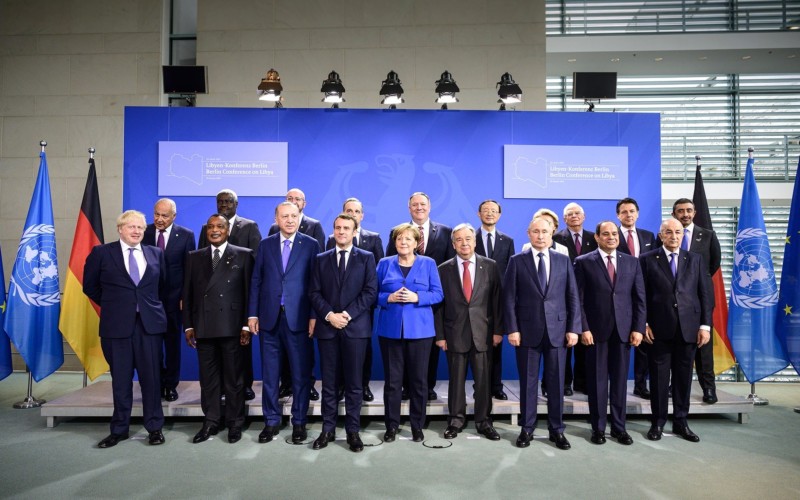Many comments by Western experts on the outcome of the Berlin Conference on Libya include overt skepticism and pessimism. They say that the Final Conclusions adopted instead of the communiqué are unrealizable, and the warring parties of the Libyan conflict are the Prime Minister of the Government of National Accord (PNS) Faiz Sarraj and the commander of the Libyan National Army (LNA) Khalifa Haftar, although they were present in Berlin, in direct dialogue with friend did not enter. And, therefore, according to their logic, with whom did the conference participants agree then and how will this help end the civil war?
In the West, the main result of the meeting is the agreement to stop all foreign intervention in the war in Libya and not support any of the warring parties with arms. But one cannot ignore the fact that the Libyan parties, according to Russian Foreign Minister Sergei Lavrov, “have taken a small step forward compared to the meeting held on January 13 in Moscow.” They agreed to delegate five representatives each to a military committee, within the framework of which all issues related to ensuring a ceasefire, achieved on the initiative of Russia and Turkey and entered into force on the night of January 12, will be considered.
It is noteworthy that the very possibility of the current negotiations was manifested only with the assistance of Russia, which, as many Western commentators are forced to admit, turned into a “leading player” in the Middle East. Before Berlin, representatives of the PNS and LNA negotiated in Moscow, where they confirmed their intention to maintain a ceasefire. At the same time, Russia does not engage in “pulling the blanket over itself”, leaving its proper place in the negotiation process of each of the countries of the region interested in the Libyan settlement. Among them are Turkey, the UAE, Egypt, Algeria and Qatar.
In general, the conference was definitely useful. The situation really remains difficult and, possibly, engaging in a constructive and sustainable intra-Libyan dialogue will not be easy. But, nevertheless, the Berlin process gave good chances, including for a political solution to the conflict. And here, from the whole series of Western assessments, I would agree with the statement of Italian Foreign Minister Luigi Di Mayo. “The Berlin conference achieved the results for which it was convening,” he wrote on Facebook. “Not all problems were resolved, but the step forward we were waiting for was taken.”
The fact that the “guns are silent” and negotiations are underway is already a huge breakthrough. And Western critics of the Berlin Conference can say: yes, the situation is difficult, but your countries themselves led to it. And what now – to sit idly by? Recall that a few years ago the situation in Syria seemed hopeless. And how everything has changed after Russia joined the solution to the problem!


